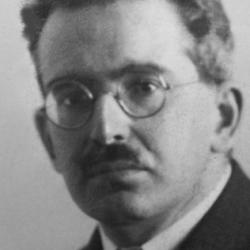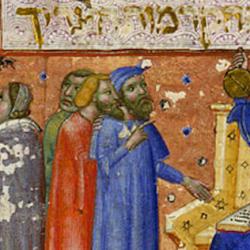In a 2001 article in History of Religious, Guy Stroumsa hightlights the role of John Spencer’s De legibus hebraeorum ritualibus (1685), sometime master of Corpus Christi, Cambridge, in the development of evolutionary and scientific studies of religion. Spencer, in turn, drew heavily on Jewish sources.
Stroumsa writes, “Spencer was quite aware that his book came in the wake of a long tradition in medieval Jewish theology, on the question of the reasons of the Divine Commandments . . . . Since Saadia Gaon (tenth century), medieval Jewish thinkers asked whether the commandments in the Torah, in particular the stranger or the more problematic among them, had any rational significance, besides the fact that they had been ordered by God” (20).
Specifically, Spencer “sees himself as Maimonides’ direct successor, with two differences. The first is that he is a Christian, that is, a fully accomplished Jew, who understands the fuller meaning of God’s law. As a Christian, Spencer is not bound to keep most ritual laws mentioned in the Torah, since Christ has offered a more spiritual way of being faithful to God’s revelation. He thus understands, better than Maimonides, that there is an evolution in history, that God has revealed himself and his will gradually. . . . Jesus permitted a higher, more spiritual way of serving God than the ritual laws of Moses. And finally, the Reformation proposed a better Christianity than Catholicism, a religion with too many rituals, remnants, as it were, of earlier stages of religious life” (20-21).
This rationalist, developmental, progressive view of religion served apologetic purposes both in evangelizing Jews and in supporting the Protestant cause against Catholicism: Spencer “is arguing against the Jews, who will be more easily converted once they understand the historical reasons of the commandments. At the same time, he fights the papists, but also the enthusiasts, Protestants who have left the high road of reasonable religion. . . . Spencer carries Maimonides’ views on historical evolution to their logical end, whereas Maimonides’ evolutionary perspective on religious history remains locked by his belief that although the laws of the Torah were meant as a concession to earlier religious conceptions, they themselves could not be superseded” (21).
(Stroumsa, “John Spencer and the Roots of Idolatry,” History of Religions 41:1 [2001] 1-23.)














